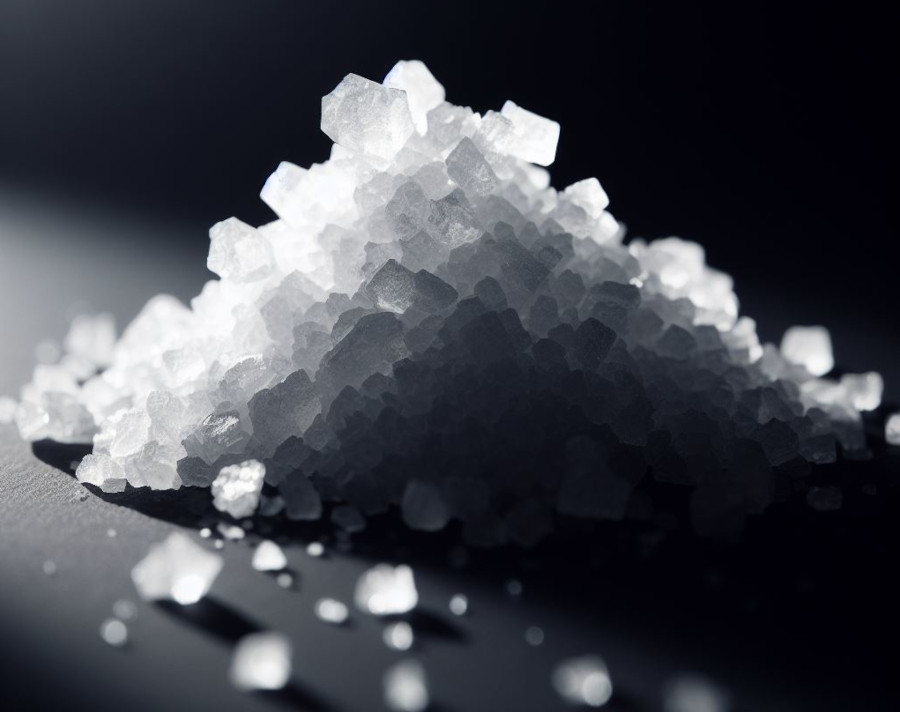Dr. Sebi generally recommended avoiding table salt and suggested using natural alternatives, as per his recommendations from his ‘Nutritional Guide’. The two types of salt options mentioned are:
1. pure sea salt and
2. granulated seaweed
Sea salt is often considered a more natural form of salt compared to highly processed table salt. Seaweeds are also natural and can be used to add flavor to dishes and provide some essential minerals.
Some benefits of Dr. Sebi salt recommendations:
Here’s an outline highlighting the potential benefits of Pure Sea Salt and Granulated Seaweed:
1. Pure Sea Salt:
a. Rich in Minerals: – Contains essential minerals such as sodium, magnesium, potassium, and calcium. – Provides trace elements that are vital for various bodily functions.
b. Natural and Unprocessed: – Unlike table salt, pure sea salt is typically less processed and retains more of its natural minerals. – Free from additives and preservatives commonly found in table salt.
c. Balances Electrolytes: – Helps maintain proper electrolyte balance in the body. – Essential for nerve function, muscle contractions, and overall cellular health.
d. Alkalizing Properties: – Believed to have alkalizing effects, potentially supporting the body’s pH balance. – Dr. Sebi’s dietary principles emphasized maintaining an alkaline environment in the body.
2. Granulated Seaweed:
a. Rich in Nutrients: – Contains a variety of minerals. – Rich in minerals such as iodine, iron, and calcium.
b. Natural Flavor Enhancer: – Adds a unique umami flavor to dishes, enhancing taste without the need for excessive salt. – Can be used as a healthier alternative to traditional flavor enhancers.
c. Potential Antioxidant Properties: – Seaweed may contain antioxidants that help combat oxidative stress in the body. – Antioxidants play a role in protecting cells from damage caused by free radicals.
d. Supports Thyroid Function: – Iodine content in seaweed is essential for thyroid health. – Adequate iodine is necessary for the production of thyroid hormones, which regulate metabolism.
e. May Aid Digestive Health: – Contains dietary fiber that may contribute to digestive health. – The fiber content can support regular bowel movements and a healthy gut microbiome.
The problem with table salt
Table salt, also known as refined salt or iodized salt, has some drawbacks that have led to concerns about its impact on health. Here are some common issues associated with table salt:
- Processing and Additives:
- Table salt is often highly processed, which involves refining and removing impurities. This process strip away beneficial minerals.
- Anti-caking agents, such as sodium aluminosilicate or magnesium carbonate, are frequently added to prevent clumping.
- Iodine Overload:
- While iodine is an essential nutrient for thyroid health, some table salt is iodized to prevent iodine deficiency disorders. Excessive iodine intake, especially artificial iodine, however, can lead to thyroid dysfunction and other health issues.
- Excessive iodine from iodized salt may contribute to health imbalances.
- Lack of Trace Minerals:
- Table salt often lacks the variety of trace minerals found in unrefined salts, such as natural sea salt.
- Trace minerals play important roles in various bodily functions, and a deficiency can impact overall health.
- Potential for Sodium Overconsumption:
- Consuming too much sodium, a component of salt, has been linked to high blood pressure and an increased risk of cardiovascular diseases.
- Processed and restaurant foods often contain high levels of sodium, contributing to the overall sodium intake.
- Impact on Fluid Balance:
- High sodium intake can affect fluid balance in the body, leading to water retention and increased blood pressure.
- Individuals with certain health conditions, such as hypertension or heart failure, may need to monitor their sodium intake more closely.
- Alkalinity and Acid-Base Balance:
- Dr. Sebi’s principles, emphasize maintaining an alkaline state in the body. Table salt is considered acidic, and proponents of alkaline diets will need to avoid it in favor of more alkaline-forming salts.
- Taste Preference:
- Table salt may contribute to a preference for overly salty foods, potentially leading to less enjoyment of the natural flavors of foods with lower salt content.
Consumption of iodized salt may be harmful for most people. Individuals with specific health concerns, such as hypertension or thyroid disorders, should be mindful of their salt intake.
References
- National Institutes of Health (NIH):
- The NIH offers information on dietary minerals, including iodine.
- Website: NIH Office of Dietary Supplements
- American Heart Association (AHA):
- The AHA provides guidelines on sodium intake and its impact on cardiovascular health.
- Website: American Heart Association
- PubMed:
- Scientific research in the fields of nutrition, cardiology, and endocrinology publish research on salt, iodine, and related topics.
- Website: https://pubmed.ncbi.nlm.nih.gov/.
- Dietary Guidelines for Americans:
- The Dietary Guidelines for Americans, published jointly by the U.S. Department of Agriculture (USDA) and the U.S. Department of Health and Human Services (HHS), provide recommendations on salt intake.
- Website: Dietary Guidelines for Americans














